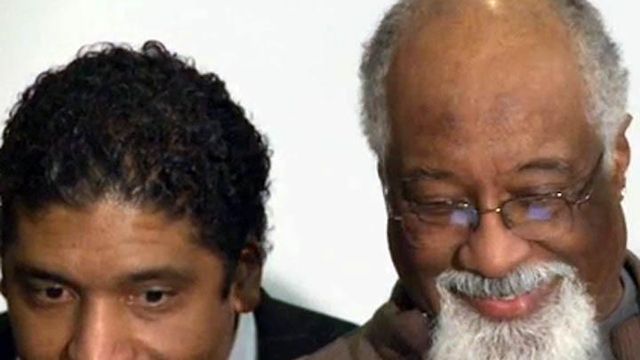Perdue signs pardons of innocence for Wilmington 10
Gov. Beverly Perdue signed pardons of innocence Monday for the Wilmington 10, the nine men and one woman wrongly convicted more than 40 years ago in the fire-bombing of a grocery store after police shot a black teenager.
Posted — UpdatedPerdue could have done nothing or issued one of two kinds of pardons – one of innocence or one of forgiveness, which is for people guilty of a crime.
"I have decided to grant these pardons because the more facts I have learned about the Wilmington 10, the more appalled I have become about the manner in which their convictions were obtained," Perdue said in a statement.
Four of the Wilmington 10 are now dead, and several surviving members are in poor health. They cried tears of joy and were overcome with emotion Monday upon learning that the state had finally cleared their names.
"These pardons help remove a stain from the nation, help to heal the breach of the world," State NAACP President Rev. William Barber said. "It took too long, but thank God it has come."
"It's not so much (a decision) that will vindicate members of the Wilmington 10, but says a lot about vindicating North Carolina," said Irving Joyner, a law professor at North Carolina Central University who represented the activists at their 1972 trial. "(Perdue) has restored in the minds of a lot of people there is a semblance of justice here."
Three key witnesses in the case recanted their testimony, and all 10 people were freed in 1978 when then-Gov. Jim Hunt commuted their sentences. Two years later, the 4th U.S. Circuit Court of Appeals in Richmond, Va., threw out the convictions, saying perjury and prosecutorial misconduct were factors in the verdicts.
"The legitimacy of our criminal justice system hinges on it operating in a fair and equitable manner with justice being dispensed based on innocence or guilt – not based on race or other forms of prejudice. That did not happen here," Perdue said. "Instead, these convictions were tainted by naked racism and represent an ugly stain on North Carolina’s criminal justice system that cannot be allowed to stand any longer."
The North Carolina chapter of the NAACP recently said newly discovered notes by the prosecutor in the Wilmington 10 case show he engaged in racial profiling to select a jury that would be more favorable for a conviction.
Notes taken by former Pender County prosecutor Jay Stroud show he lied to a judge to get a mistrial so he could pick another jury in the case, the NAACP charged. He then used a race-based strategy during jury selection.
"This is a place where some healing and mending can occur, where the wrong is pretty clear and the right is pretty obvious, and we can say we made a mistake and we are not going to do that anymore," said Tim Tyson, a Duke University history professor who helped find Stroud's notes.
The Wilmington Ten Pardons of Innocence Project – an outreach effort of the National Newspaper Publishers Association and the Wilmington Journal newspaper – released a statement Monday, saying it is "very proud of North Carolina today, and extraordinarily grateful to our governor."
Cash Michaels, a Raleigh journalist and filmmaker who coordinated a petition drive seeking the pardons, said Perdue helped the activists regain their dignity.
"What it does now, it sets a standard. It now tells us what to look for," Michaels said. "It empowers us now to demand more from our criminal justice system."
• Credits
Copyright 2024 by WRAL.com and the Associated Press. All rights reserved. This material may not be published, broadcast, rewritten or redistributed.





